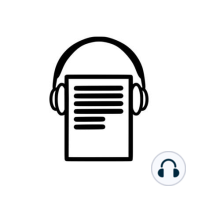20 min listen

The junctional mechanosensor AmotL2 regulates YAP promotor accessibility
The junctional mechanosensor AmotL2 regulates YAP promotor accessibility
ratings:
Length:
20 minutes
Released:
Jan 13, 2023
Format:
Podcast episode
Description
Link to bioRxiv paper:
http://biorxiv.org/cgi/content/short/2023.01.13.523596v1?rss=1
Authors: Mannion, A. J., Zhao, H., Zhang, Y., von Wright, Y., Bergman, O., Saharinen, P., Holmgren, L.
Abstract:
Endothelial cells (ECs) are constantly exposed to mechanical forces in the form of fluid shear stress, extracellular stiffness, and cyclic strain. How these forces are sensed by ECs remains an understudied aspect in the homeostatic regulation of the circulatory system. Angiomotin-like 2 (AmotL2) is localised to EC junctions and is required for alignment and actin reorganisation under conditions of high shear stress. Here we show that AmotL2 crucially regulates transcription and promotor activity of the YAP gene. Functionally, density-dependent proliferation of ECs in vitro and proliferation of a subpopulation of ECs within the inner aortic arch, were both reliant on AmotL2 and Yap/Taz endothelial expression in vivo. Mechanistically, depletion of AmotL2 led to altered nuclear morphology, chromatin accessibility and suppression of YAP-promotor activity through increased H3K27me3 mediated by the polycromb repressive complex component EZH2. Our data describe a previously unknown role for junctional mechanotransduction in shaping the epigenetic landscape and transcriptional regulation of YAP in vascular homeostasis.
Copy rights belong to original authors. Visit the link for more info
Podcast created by Paper Player, LLC
http://biorxiv.org/cgi/content/short/2023.01.13.523596v1?rss=1
Authors: Mannion, A. J., Zhao, H., Zhang, Y., von Wright, Y., Bergman, O., Saharinen, P., Holmgren, L.
Abstract:
Endothelial cells (ECs) are constantly exposed to mechanical forces in the form of fluid shear stress, extracellular stiffness, and cyclic strain. How these forces are sensed by ECs remains an understudied aspect in the homeostatic regulation of the circulatory system. Angiomotin-like 2 (AmotL2) is localised to EC junctions and is required for alignment and actin reorganisation under conditions of high shear stress. Here we show that AmotL2 crucially regulates transcription and promotor activity of the YAP gene. Functionally, density-dependent proliferation of ECs in vitro and proliferation of a subpopulation of ECs within the inner aortic arch, were both reliant on AmotL2 and Yap/Taz endothelial expression in vivo. Mechanistically, depletion of AmotL2 led to altered nuclear morphology, chromatin accessibility and suppression of YAP-promotor activity through increased H3K27me3 mediated by the polycromb repressive complex component EZH2. Our data describe a previously unknown role for junctional mechanotransduction in shaping the epigenetic landscape and transcriptional regulation of YAP in vascular homeostasis.
Copy rights belong to original authors. Visit the link for more info
Podcast created by Paper Player, LLC
Released:
Jan 13, 2023
Format:
Podcast episode
Titles in the series (100)
Alterations in platelet proteome signature and impaired platelet integrin αIIbβ3 activation in patients with COVID-19 by PaperPlayer biorxiv cell biology